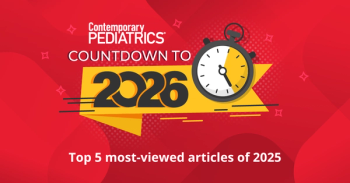
Poor rate of outpatient care following mental health ED visit
In a recent study, a poor connection was reported between mental health emergency department discharge and follow-ups through outpatient care.
Patients experience poor connection to outpatient care in the 7 to 30 days following mental health (MH) emergency department (ED) discharge, according to a recent study.
There has been a rise in US visits to the ED because of MH, most of which lead to discharge. Timely follow-up supports ongoing MH care after discharge, with follow-up to MH ED visits occurring in 7 to 30 days for patients aged 6 to 17 years recommended by the National Child Core Set of quality measures since 2022.
There Is little evidence on the association between timely follow-up after MH ED discharge and beneficial outcomes. To determine the rate of follow-up care and the associated benefits, investigators conducted a retrospective cohort study.
Participants included Medicaid enrolled children aged 6 to 17 years who were discharged from MH ED at least once between January 2018 and June 2019. Exclusion criteria included having no MH and substance use coverage, not having continuous Medicaid enrollment in the 6 months following index ED visit, and only having MH ED visits leading to admission.
The Healthcare Effectiveness Data and Information Set was used to define MH encounters, while the International Classification of Diseases, Tenth Revision, Clinical Modification was used to determine primary MH diagnoses. Procedure and place of service codes were used to determine the MH encounter location.
Sociodemographic variables measured included race and ethnicity, sex, age group, and insurance type.There were 28,551 children included in the analysis, 75.5% of which were aged 12 to 17 years, 51.6% female, 57.0% non-Hispanic White, and 31.7% non-Hispanic Black.
Depressive disorders were the most common MH condition, seen in 39.1% of patients. This was followed by disruptive, impulse control, and conduct disorders at 25% and trauma and stressor-related disorders at 14.2%. A follow-up within 7 days of ED discharge was seen in 31.2% of patients, while a follow-up within 30 days of discharge was seen in 55.8%.
A median of 8 outpatient visits from 8 days to 6 months was seen in patients who received follow-up within 7 days, compared to a median 6 outpatient visits from 31 days to 6 months in patients who received follow-up within 30 days.
Follow-ups within 7 days and within 30 days were seen less frequently in non-Hispanic Black children compared to non-Hispanic White children. Children with fee-for-service insurance were also less likely to receive follow-ups within 7 days and within 30 days than those with capitated insurance.
The rate of follow-up visits increased alongside the rate of MH ED visits. A return acute care encounter within 7 days was seen in 6.5% of children, 12.8% within 30 days, and 26.5% within 6 months.
A follow-up within 7 days was associated with a 27% decreased risk of return MH acute care encounter within 5 days of index discharge, and a follow-up within 30 days was associated with a 26% decreased risk of return MH acute care encounter within 5 days of index discharge. This showed an association between follow-up and lower risk of return.
Reference
Hoffmann JA, Krass P, Rodean J, et al. Follow-up after pediatric mental health emergency visits. Pediatrics. 2023;151(3). doi:10.1542/peds.2022-057383
Newsletter
Access practical, evidence-based guidance to support better care for our youngest patients. Join our email list for the latest clinical updates.








